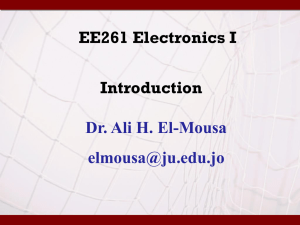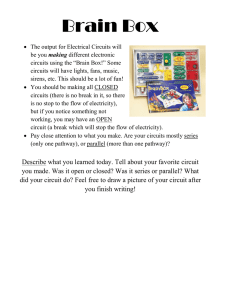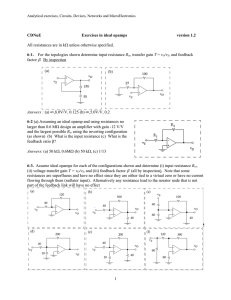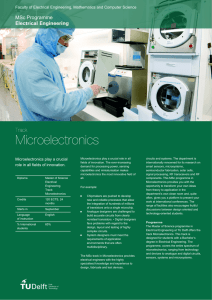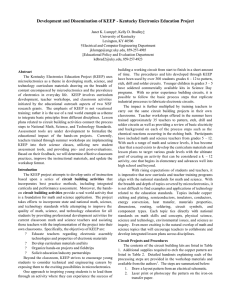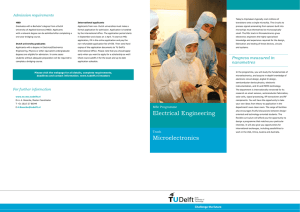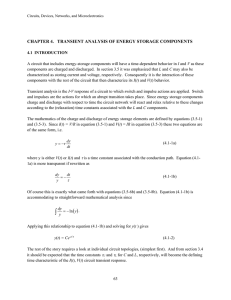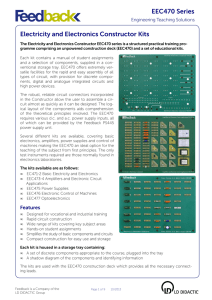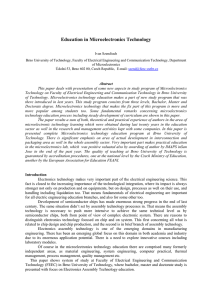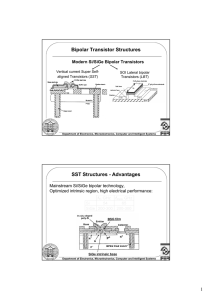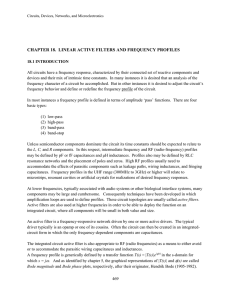KEEP - Kentucky Electronics Education Project
advertisement
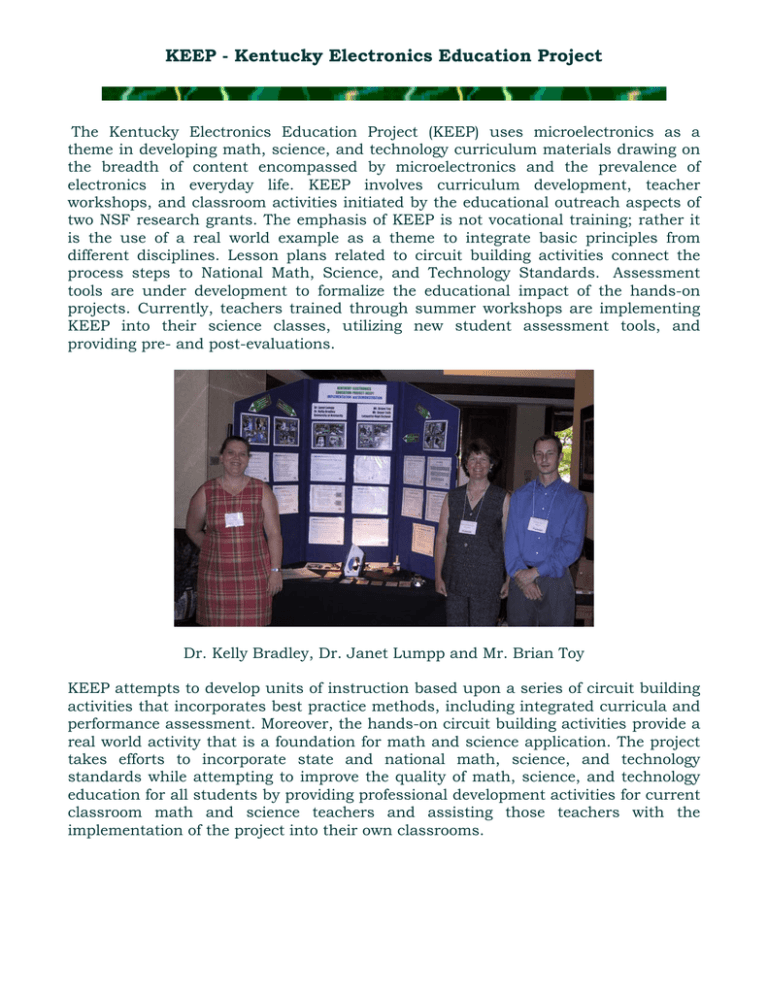
KEEP - Kentucky Electronics Education Project The Kentucky Electronics Education Project (KEEP) uses microelectronics as a theme in developing math, science, and technology curriculum materials drawing on the breadth of content encompassed by microelectronics and the prevalence of electronics in everyday life. KEEP involves curriculum development, teacher workshops, and classroom activities initiated by the educational outreach aspects of two NSF research grants. The emphasis of KEEP is not vocational training; rather it is the use of a real world example as a theme to integrate basic principles from different disciplines. Lesson plans related to circuit building activities connect the process steps to National Math, Science, and Technology Standards. Assessment tools are under development to formalize the educational impact of the hands-on projects. Currently, teachers trained through summer workshops are implementing KEEP into their science classes, utilizing new student assessment tools, and providing pre- and post-evaluations. Dr. Kelly Bradley, Dr. Janet Lumpp and Mr. Brian Toy KEEP attempts to develop units of instruction based upon a series of circuit building activities that incorporates best practice methods, including integrated curricula and performance assessment. Moreover, the hands-on circuit building activities provide a real world activity that is a foundation for math and science application. The project takes efforts to incorporate state and national math, science, and technology standards while attempting to improve the quality of math, science, and technology education for all students by providing professional development activities for current classroom math and science teachers and assisting those teachers with the implementation of the project into their own classrooms. Specifically, the objectives of KEEP are: · Educate teachers regarding electronic assembly technologies and properties of electronic materials · Develop curriculum materials and kits · Organize hands-on projects and fieldtrips · Solicit education/industry partnerships Beyond the classroom, KEEP strives to encourage young students to consider technical and engineering careers by exposing them to the exciting possibilities in microelectronics. The procedures and kits developed through KEEP have been used by over 450 students grades 6 – 12 to pattern, etch, drill and solder circuits. Younger children in grades 3 – 5 have soldered commercially available kits in Science Day programs. With no prior experience building circuits, it is possible to follow the basic process steps that replicate industrial processes to fabricate electronic circuits. The impact is further multiplied by training teachers to carry out the same circuit building projects in their own classrooms. Teacher workshops offered in the summer have trained approximately 35 teachers to pattern, etch, drill and solder circuits as well as providing a review of basic electricity and background on each of the process steps such as the chemical reactions occurring in the etching bath. Participants have included math and science teachers from grades 5 – 12. With such a range of math and science levels, it has become clear that a need exists to develop the curriculum materials and lesson plans to target various grade levels with the ultimate goal of creating an activity that can be considered a k – 12 activity, one that begins in elementary and advances well into high school and beyond. With rising expectations of students and teachers, it is imperative that new curricula and teacher training programs align with the national standards for math and science. With the breadth and depth of topics covered by microelectronics, it is not difficult to find examples and applications of technology related to the education standards. Topics include copper etching and plating, semiconductors, insulators, conductors, energy conversion, heat transfer, materials properties, dimensions, routing, soldering, circuit symbols, and component types. Each topic ties directly with national standards on math skills and concepts, physical science, science and technology, environmental issues, and science as inquiry. Even more exciting is the natural overlap of math and science topics that will encourage teachers to collaborate and develop integrated lesson plans across disciplines.
